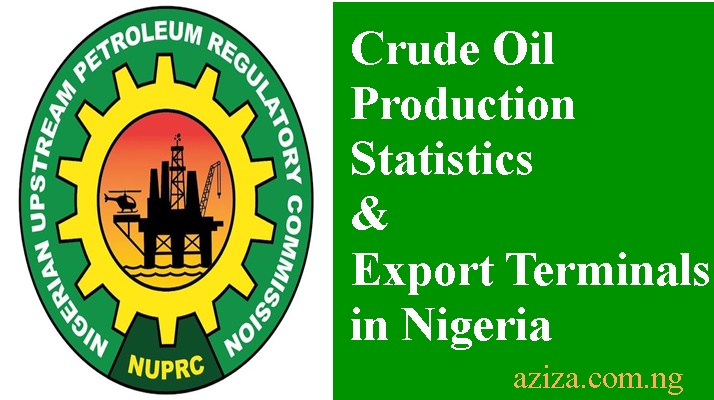The Nigeria Hydrocarbon or Oil and Gas Production Statistics. Many commonly called it crude oil. As at the end of the year 2022. Nigeria is the tenth most petroleum –rich nation in the world. The country’s oil reserves are put at between 16 and 22 billion barrels by the US Energy Information Administration (EIA) while other sources put the country’s oil reserves at between 35.3 billion barrels and a little above that mark.
The Nigerian Hydrocarbon/ Crude Oil is extracted from 323 developed fields located in both onshore and offshore terrains. These fields, which either contain Crude Oil, Condensates or Natural Gas reservoirs, are connected to 265 production processing stations, after which the stabilised Oil and Gas are exported via export terminals.
Nigeria’s crude oil production is within the range of 2.2million barrels (350,000 m3) per day. This output is strictly based on OPEC regulation on production.
Read: 57 Marginal Fields’ Bid Round
The onshore processing infrastructures are linked to 8 crude oil/condensates and NGLs export terminals through pipelines that span 5,284 km. Some of these delivery pipelines connected to the five onshore export terminals are utilised by both the asset operators and third-party oil producers, for transportation, storage and lifting of Crude Oil blends through export or delivery to domestic refineries.
The data reached an all-time high of 2,496.000 Barrel/Day th in Nov 2005 and a record low of 1,015.000 Barrel/Day th in Sep 2022.
Sources Of Oil and Gas Resources in Nigeria
In Nigeria, oil was reportedly first discovered in Bayelsa State, in the Niger Delta, in 1956. Prio to Thursday November 24 2022 when Oil and Gas Production commenced in Northern Nigeria, all of the oil and gas reserves in Nigeria are concentrated in and around the Southern Nigeria while off-shore rigs are majorly found in the coastal region of the same Southern Nigeria.
Nigeria is made up of 36 states and federal territory. Prio to Thursday November 24 2022, nine states produce crude oil and the states are all in Southern Nigeria.
Read: How to Do Business as Foreigner in Nigeria
Crude Oil and Gas Terminals & Operators in Nigeria
There are onshore and offshore terminals in Nigeria. The former are land platforms while the latter are comprising of Floating Production Storage and Offloading (FPSO) and Floating Storage and Offloading (FSO).
In conclusion, it is expected that Nigerian Hydrocarbon or Oil and Gas Production will significantly increase with the 2022 Marginal Fields’ Bid Round that gave birth to new 57 fields. Crude Oil is the main/ major source of revenue to Nigeria. Nigeria as a country has been into oil and gas exploration since 1956 till date. Till date, she does not have good measurement skill to officially give accurate data of Crude Oil production. Nigeria oil and gas is at the development stage and one of the best investment destinations for business men and women from all over the world. Nigeria is a friendly country in the world and accommodates foreigners.

